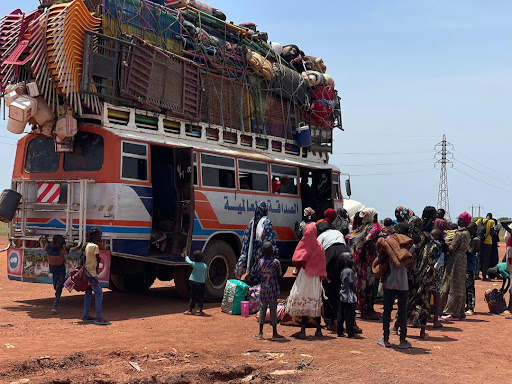
The United Nations has issued a warning that the ongoing conflict in Sudan has the potential to result in a severe humanitarian crisis, with millions of people requiring urgent assistance.
According to the World Food Programme (WFP), the conflict has put an additional 2.5 million people at risk of starvation, bringing the total number of individuals experiencing acute food insecurity to a staggering 19 million.
“The biggest spikes in food insecurity are expected in West Darfur, West Kordofan, Blue Nile, Red Sea and North Darfur states,” says WFP.
The UN says the ongoing conflict in already troubled Darfur has resulted in a dire humanitarian disaster, causing the displacement of numerous people and leaving them in urgent need of food and medical aid.
The conflict has now stretched into its fourth week, with no end in sight as people continue to die.
As per the UN agencies, the conflict led to the exodus of more than 150,000 people from the country, while an additional 700,000 people have been internally displaced.
This is in addition to the 3.7 million individuals who were already displaced prior to the outbreak of the conflict. More than 600 people, including innocent civilians, have lost their lives while over 5,000 others have sustained injuries.
A video posted on Twitter and verified by HumAngle has shown hundreds of people arriving in South Sudan as they fled the Sudan conflict.
The conflict began on April 15, when RSF initiated an attack on the capital city of Khartoum. The RSF was quickly met with resistance from the Sudan Armed Forces (SAF), and the fighting escalated.
Despite ongoing discussions on a ceasefire agreement in Saudi Arabia, locals reported seeing warplanes circling Khartoum and nearby cities on Thursday, May 11, indicating that many attempts to end the fighting have been unsuccessful.
Residents have also reported ground battles in several neighbourhoods of Khartoum between the army and the paramilitary RSF, as well as heavy gunfire in the north of Omdurman and the east of Khartoum North, two adjacent cities separated from Khartoum by the Nile river.
Despite many calls, the warring parties have refused a total ceasefire, accusing each other of violating agreements. The RSF has also said that it will not back down until it has achieved its goals, which include the removal of the SAF from power.
Not only is the ongoing conflict in Sudan causing a humanitarian crisis, it also poses a significant threat to the stability of the region.
Sudan has a significant role in the Horn of Africa, and the ongoing conflict has the potential to trigger regional instability and further violence. The country has a long history of conflict, and the current fighting could easily spiral out of control.
The root of the ongoing conflict can be traced back to the nation’s extensive record of political and economic instability. Sudan has been ruled by autocratic regimes for much of its history, and the country has been plagued by civil wars and ethnic violence.
In 2019, a popular uprising resulted in the removal of the long-standing dictator of the country, Omar al-Bashir, thus initiating the ongoing conflict. Following the uprising, a Period of political uncertainty ensued as the nation grappled with the challenge of transitioning to a new government.
Last year, a military coup toppled the transitional government. Since the coup, the country has been embroiled in a political crisis, with widespread protests being a common occurrence.
